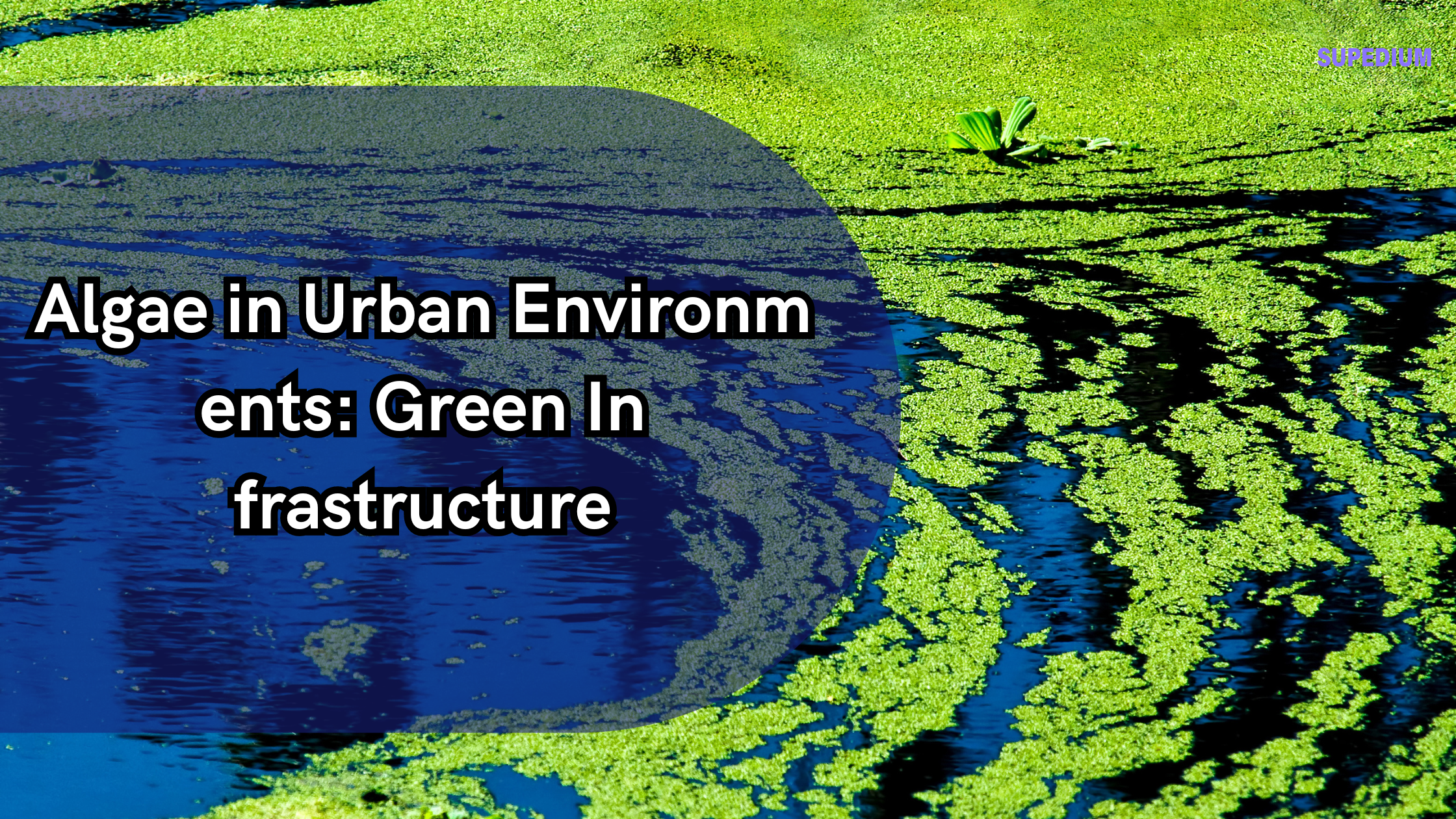Table of Contents
![]()
Introduction
As cities around the world grapple with the challenges of climate change, pollution, and resource depletion, green infrastructure has emerged as a crucial strategy for sustainable urban development. Green infrastructure includes a variety of natural and semi-natural systems designed to provide environmental, economic, and social benefits. One innovative and promising component of green infrastructure is the use of algae. Algae, often overlooked, offer a range of ecological and aesthetic advantages in urban settings, making them an intriguing option for enhancing city sustainability.
Benefits of Algae in Urban Environments
Environmental Benefits
Air Quality Improvement: Algae play a significant role in improving urban air quality. Through photosynthesis, algae absorb carbon dioxide (CO2) and release oxygen, thereby reducing greenhouse gas concentrations in the atmosphere. Additionally, algae can help mitigate particulate matter, which is a common pollutant in urban environments.
Water Quality Enhancement: In urban settings, algae contribute to water quality through nutrient cycling. They absorb excess nutrients such as nitrogen and phosphorus from runoff, which helps to prevent the eutrophication of water bodies. Algae also play a role in mitigating stormwater runoff by stabilizing soil and filtering pollutants before they reach waterways.
Climate Regulation: Algae are effective at sequestering carbon, which can help in climate regulation. By capturing CO2 during photosynthesis, algae reduce the overall concentration of greenhouse gases. Additionally, algae can contribute to reducing the urban heat island effect, which is a common issue in densely built environments.
Aesthetic and Social Benefits
Green Space and Urban Aesthetics: Algae-based systems can enhance urban aesthetics. Living walls and green roofs incorporating algae offer visually appealing solutions that contribute to the beautification of cities. The integration of algae into urban landscapes adds vibrant green spaces that can make cities more attractive and pleasant.
Public Health and Well-being: Green spaces, including those with algae components, provide numerous health benefits. They offer psychological relief, reduce stress, and improve overall well-being. Algae-based installations can also serve educational and recreational purposes, increasing community engagement with environmental issues.
Economic Benefits
Cost-effectiveness: Algae-based systems can be cost-effective compared to traditional infrastructure. They require lower maintenance and can be more affordable to implement over time. The economic advantages also extend to potential savings in healthcare costs due to improved air and water quality.
Job Creation and Innovation: The development and deployment of algae technologies create new job opportunities in research, design, and maintenance. Innovations in algae cultivation and application foster a growing industry with significant economic potential.
Applications of Algae in Green Infrastructure
Algae-based Bioreactors
Algae-based bioreactors are designed to optimize the growth of algae for environmental benefits. These systems use controlled environments to enhance algae productivity. They can be integrated into buildings or stand-alone installations. Urban examples include the bioreactor facades that not only contribute to energy efficiency but also absorb CO2 from the air.
Living Walls and Roofs
Living walls and roofs that incorporate algae provide both environmental and aesthetic benefits. Algae-infused systems on building facades and rooftops help to insulate buildings, reducing energy consumption. Additionally, they improve air quality and create green spaces in otherwise underutilized areas of urban architecture.
Algae for Wastewater Treatment
Algae are increasingly used in wastewater treatment facilities. They help to remove organic pollutants and nutrients from wastewater through natural processes. This application is particularly valuable in urban areas where traditional wastewater treatment plants are often overwhelmed. Algae-based systems offer a sustainable alternative that reduces the environmental impact of wastewater disposal.
Algae in Urban Agriculture
Urban agriculture benefits from the use of algae in various ways. Algae can be utilized in vertical farming systems and rooftop gardens to enhance plant growth. They provide essential nutrients and improve soil health, contributing to more sustainable urban food production practices.
Challenges and Considerations
Technical and Practical Challenges
While the benefits of algae are considerable, there are technical and practical challenges to consider. Maintaining algae-based systems requires careful management of environmental conditions such as light, temperature, and nutrient levels. Additionally, integrating algae technology with existing urban infrastructure can be complex and requires thoughtful design and planning.
Environmental and Health Risks
Potential risks include the possibility of harmful algal blooms, which can produce toxins harmful to humans and wildlife. Proper management and monitoring are essential to mitigate these risks and ensure that algae-based systems are safe for the urban environment.
Regulatory and Policy Issues
Implementing algae-based green infrastructure often involves navigating regulatory and policy challenges. Building codes may need to be updated to accommodate new technologies, and incentives may be necessary to encourage the adoption of algae systems. Collaboration between policymakers, engineers, and environmentalists is crucial for overcoming these barriers.
Case Studies
Successful Urban Algae Projects
Several urban algae projects highlight the potential of this technology. For example, the BIQ Building in Hamburg, Germany, features a facade covered with algae panels that generate bioenergy and provide insulation. Similarly, the Solaire building in New York City uses algae to enhance its green roof system, demonstrating the integration of algae into high-density urban environments.
Comparative Analysis
Comparing different algae-based systems reveals best practices and strategies for successful implementation. For instance, systems that combine algae with other green technologies, such as rainwater harvesting and solar panels, can offer comprehensive environmental benefits. Analyzing these case studies provides valuable insights into optimizing algae-based green infrastructure.
Future Directions and Innovations
Emerging Technologies
The future of algae in urban environments is promising, with ongoing advancements in cultivation and application technologies. Innovations such as automated algae cultivation systems and improved algae strains with enhanced capabilities are expected to broaden the potential uses of algae in urban settings.
Integration with Other Green Technologies
Integrating algae with other green technologies can amplify their benefits. Combining algae systems with renewable energy sources or smart grid technologies can create more sustainable urban environments. Holistic approaches that consider the synergy between various green infrastructure elements are likely to yield the best results.
Conclusion
Algae offer a versatile and sustainable solution for enhancing green infrastructure in urban environments. Their benefits range from improving air and water quality to providing aesthetic and economic advantages. Despite challenges, ongoing innovations and successful case studies demonstrate the potential of algae to contribute significantly to urban sustainability. As cities continue to evolve, the integration of algae into green infrastructure will play a crucial role in shaping healthier, more resilient urban landscapes.
Share This





Be the first to comment